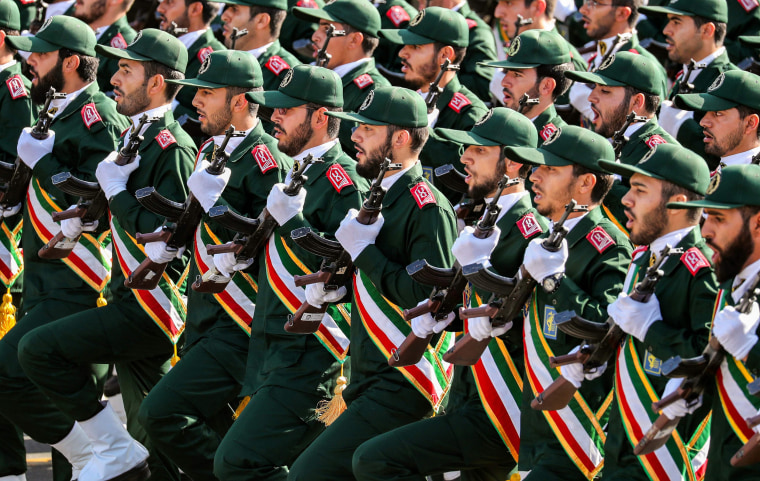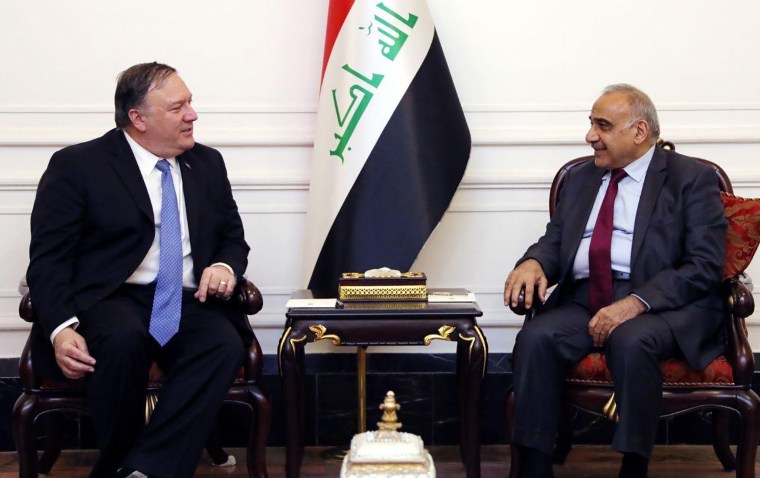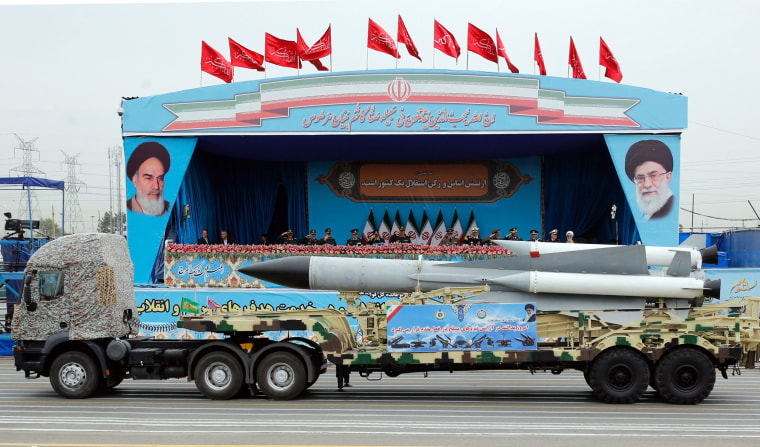WASHINGTON — As Secretary of State Mike Pompeo appeared to be sounding the drums of war against Iran Thursday, and U.S. warships were steaming toward the region, a reporter asked President Donald Trump if there is a risk of military confrontation.
After the requisite caution that “I guess you could say that always,” Trump added, “hopefully, that won’t happen.” Then, in comments that were notably pacific, Trump suggested he would welcome talks with Tehran:
“But they should call, and if they do, we’re open to talk to them," he said. "We have no secrets.”
It was a striking departure from the rhetoric of his secretary of state and his national security adviser, both of whom have stepped up their warnings that the U.S. would retaliate against Iran for any attack on U.S. interests by Iran’s proxies.

For all his bellicosity toward Tehran — including tweeting to its leaders in all-caps last July that they will "SUFFER CONSEQUENCES THE LIKES OF WHICH FEW THROUGHOUT HISTORY HAVE EVER SUFFERED BEFORE" if they threaten the U.S. — Trump has always been ambivalent about the use of force to achieve regime change. In Iran’s case, he appears to believe that crippling sanctions will eventually force its government to accept a tougher nuclear deal than the one negotiated under President Barack Obama.
In fact, the global embargo on Iran’s oil exports the administration is now imposing does threaten to strangle Iran’s economy by cutting off oil purchases even by America’s closest allies. Britain, France and Germany have so far failed to create a workaround to circumvent the U.S. banking system to keep buying Iran’s oil. Reluctantly, they will be forced to stop dealing with Iran if they want continued access to the vastly more important American markets and the U.S. financial system that dominates world trade.
Iran has unsettled European allies by breaking out of parts of the nuclear deal, and threatening to begin enriching uranium to weapons grade in the coming months. That would leave the multination landmark agreement in tatters.
But the president’s hawkish circle of advisers very well may be underestimating Iran’s resolve and resilience. With the approach of the U.S. election, Tehran may decide to wait out the Trump administration. And while the president seems confident in his powers of persuasion if he were in a room with Iranian President Hassan Rouhani, how has “the art of the deal” worked so far with North Korea’s Kim Jong Un?
In addition, Iran, unlike North Korea, does not have one-man rule. Rouhani has to answer not only to the supreme leader, the Ayatollah Khamenei, but also the powerful Revolutionary Guard, recently named by the State Department as a terrorist group, the first time an official government organization was so designated.

Under those conditions, negotiations between the two governments are all but impossible. And Pompeo said last week he does not believe Iran’s government could ever change enough to satisfy the administration.
Trump struck a note of independence from the hawks on Thursday when, asked about reports that he is not entirely satisfied with national security adviser John Bolton’s hard-line advice, said: “He has strong views on things but that’s OK. I actually temper John on things, which is amazing. ... I have John Bolton and I have other people who are a little more dovish and ultimately I make the decision.”
But any so-called doves in the president’s national security team have long since gone, and it is not clear what other points of view may be getting through to the president.
The overriding concern for critics is the risk of miscalculation by either side: an increasingly isolated and beleaguered American president and a regime in Tehran that is both hostile toward the U.S. and feels betrayed, having given up its nascent nuclear capability without the promised economic rewards.
A chorus of Senate Democrats on the foreign relations and armed services committees are now warning that the president’s policy could be risking something he himself might not want: an unnecessary war.

